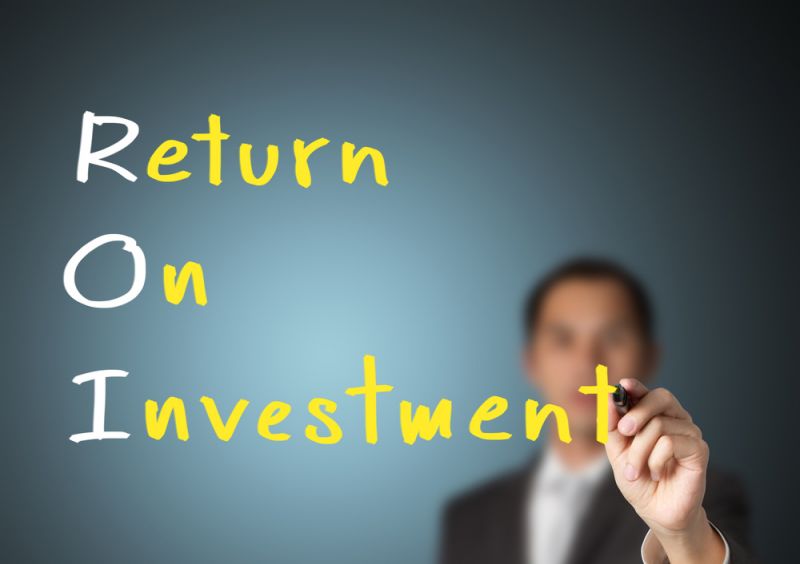
Measuring the Return on Investment (ROI) of executive coaching and other leadership development initiatives can be a contentious issue and a challenging task. Nonetheless, this not always the case and it is possible to do it.
The easiest way is by asking and researching.
Executive coaching
I have recently completed a 12 month coaching assignment with a CEO. During the evaluation processes, he was asked to ‘estimate’ the ROI to his business from the coaching he received. This is what he said:
“The return for the business is a number too large to quantify for the investment of my coach, the program and my time.”
In addition, a post-coaching evaluation comprising a 360 degree feedback and interviews with the CEO’s stakeholders, at the end of the twelve month period, revealed that he had become more assertive, entrepreneurial and strategic. With a reported 50% improvement on the CEO’s leadership effectiveness, execution and impact on efficiency, coaching outcomes identified included the following two benefits for the business: making faster and greater acquisitions, and expansion and an increase in sales for a number of products.
Leadership development
During one of the interviews I have been conducting as part of an evaluation of a global leadership development program with a group of participants who attended the program two years ago, one person said, when asked about the estimated ROI to the business:
“The program was a great opportunity to meet people from different geographical locations and cultures. For me, the best takeaway was learning a new negotiation vendor strategy from a European colleague. When I got back home, I applied this new negotiation approach with mobile phone vendors and, in less than a year, I was able to generate savings of just over $100,000.”
The interesting thing about this case was that this benefit to the business came about not so much from a direct and specific expected learning outcome of the program, but rather from a broader, subtler one: building networking skills and the social capital (collective value of all social networks) of the firm.
Six lessons about measuring ROI
- There a different ways to demonstrate value;
- If you don’t ask, because you assume it’s too hard to measure, you will never know;
- A qualitative response can be a good indicator of a very high quantitative numerical value;
- Keep it simple. However, always conduct a post-evaluation combining self-reported and multi-rater measures;
- ROI can emerge from the least expected sources; and
- Do your best to arrange a 12 month follow-up to ascertain long-term lasting tangible benefits and business results.
About ROI
There are various approaches to ROI. Certainly, placing monetary value on intangible, hard-to-measure qualities like leadership development, executive coaching, creativity, customer loyalty, employee engagement, and others, can be a good case for a ‘Show Me the Money’ exercise.
ROI, however, does not necessarily mean a financial return to the business that can be easily captured in the balance sheet, as many people believe. It may include indirect returns or financial windfalls as a result of leaders applying new competencies that result, for example, in attracting new clients, building better teams, coordinating actions/executing more effectively, or positive changes in management/leadership style, improved quality of work and higher productivity.
In fact, some authors (e.g. Grant, 2012) argue that financial return on investment (ROI) is a poor, impoverished, unreliable and insufficient measure of coaching outcomes and success. Thus, a potential approach for evaluating the impact of coaching in organizations is to look at wellbeing and engagement as indicators of improvement; outcomes that are not directly quantifiable but nonetheless real and assessable.
The key is to get clear on what approach best suits your organization.
References
Grant, A.M. (2012). ROI is a poor measure of coaching success: Towards a more holistic approach using a well-being and engagement framework. Coaching: An International Journal of Theory, Research and Practice, 1-12.
Phillips, J.J. & Phillips, P.P. (2007). Show Me the Money: How to Determine ROI in People, Projects, and Programs. Oakland, CA: Berrett-Koehler.
——————————————————————————————————————————-
Should you require an independent researcher to evaluate and ascertain the ROI of your executive coaching and/or leadership development initiatives, please feel free to contact me directly.
Sebastian Salicru (Business Psychologist) | Leadership Development Expert, Executive Coach, Facilitator, Researcher and Author | sss@pts.net.au | www.pts.net.au


